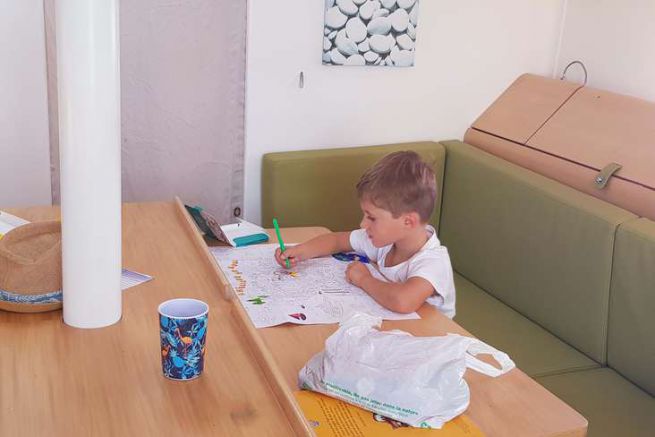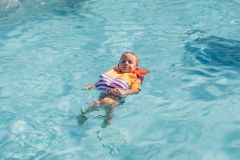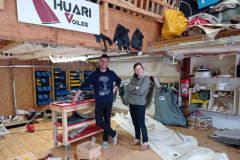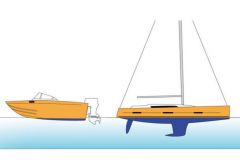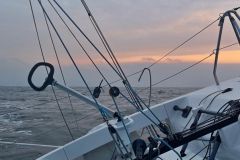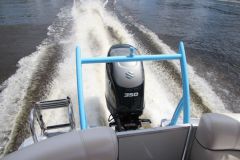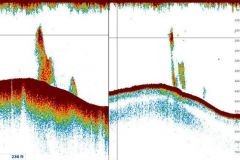Choose the right resources
A trip around the world is not a perpetual vacation. To grow and develop well, it is important to continue working and learning. To do this, there are several distance learning solutions, starting with the CNED . You will find all the resources you need to make your child work, from primary school to high school. Because you don't always have an Internet connection when you're at sea, remember to print out the entire program.
Depending on the length of your trip, you can also make arrangements with the school. Indeed, some schools can provide you with the books and booklets necessary for your child's learning as well as the related curriculum.
Many websites also allow you to complement your child's learning. To name just a few, Lumni deals with many themes (French, maths, modern languages...), but also deals with various and instructive themes in the form of short videos (What's a hole noir?? What's Brexit??)... Ideal for the more jeunes?!
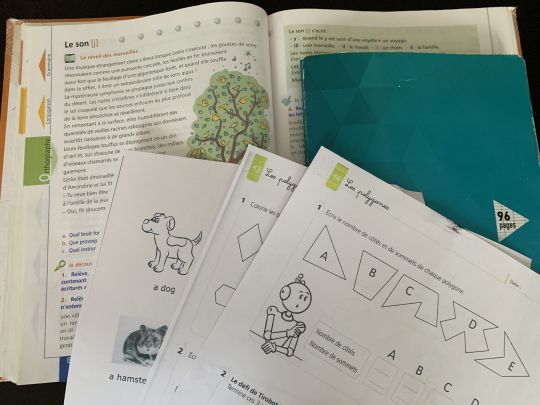
What equipment?
Pencil case (multi-coloured pencils, eraser, pencils, pencil sharpener, criterium), ruler, scissors, felt-tip pens, coloured pencils, white paper and notebooks, tracing paper... You will adapt your equipment according to your needs but here is already a good basis for having fun. Don't neglect the compass, it allows you to make many drawings and rosettes. A dictionary (heavy but downloadable) will be appreciated for some homework.
For books, the reader can be a good compromise for older children, who can download books and documentaries as they wish
Keeping to a schedule
We're not in class, so don't expect to do 6 hours of class a day. If learning in school is important for your children's education, being open to the world and nature is just as important. However, stick to a schedule that will allow your child to have an educational environment. The morning will be divided between 30 minutes of homework, 20 minutes of reading and 30 minutes of free time. The afternoon will be dedicated to an artistic activity or a discovery on land..
Impose certain schedules and create a routine: waking up, getting dressed, breakfast, homework, meals, etc. For the little ones, we recommend 1 to 2 hours of homework to be divided evenly throughout the day, as well as reading time. For older children, this time can increase to 4 hours per day.
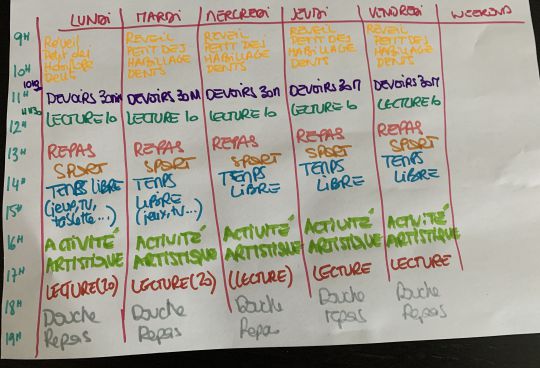
Accept that you can't do everything at once..
Even if your child is quite independent on his homework, in my opinion, it will be difficult not to participate in the homework of a student in a class below CM2. Need help to understand the instructions, need to recite a lesson... If you have several young children, it seems difficult to make them all work at the same time.
Prefer a separate schedule for smaller children. The first slot is for Louise and the second for Leo. And the next day, it's the other way around. For the older children, who are able to work in their own corner, nevertheless check their work and show them that they can count on you.
Vary the activities
Yes, school - mathematics, French, history, geography - is important for learning and cultivating, but there are a whole host of activities and discoveries that open the mind. Starting with travelling and discovering new places, cultures and people. Make the most of your shore walks to discover local cultures, different ways of life, different landscapes and animals..
On board, diversify your homework with art activities such as drawing, painting, collage, etc. Sing, read, cook and listen to musique?! In short, all these activities will awaken the minds of the youngest (and not que?!)
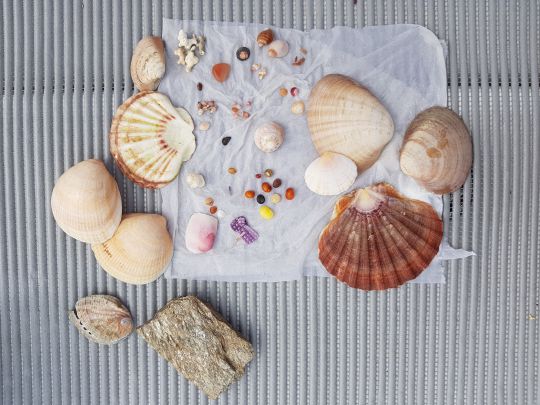
What are these different kinds of shells?
What about sport??
Because you can't neglect activity - especially for younger people who need to let off steam - especially in a confined space, find other solutions. At anchor or in the harbour, you may be able to easily swim and practice swimming. Go for a walk or even a run.
At sea, you can try stretching, yoga, movements to wake up small muscles..
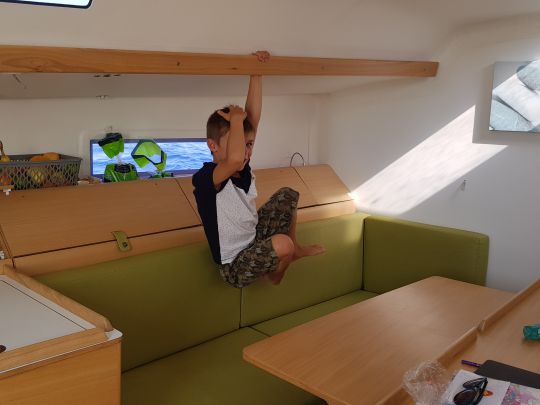
And you, what is your organization? What are your daily practices? What is your essential practice? We are waiting for your answers!
